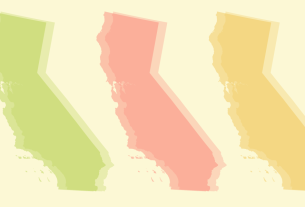That’s the warning from UN Secretary-General António Guterres on Day Two of the pivotal Fourth International Conference on Small Island Developing States (SIDS4) taking place in the Caribbean twin island nation of Antigua and Barbuda this week.
The 39 States known collectively as SIDS have been uniquely vulnerable to the trifecta of COVID – which crippled the tourism many rely on – the Russian invasion of Ukraine; and “battered by a climate catastrophe they did not create”, said Mr. Guterres.
SIDS are paying more to service their own debt than they invest in healthcare and education, the UN chief warned, leaving these nations unable to make the investments they need to meet the 2030 Sustainable Development Goals (SDGs).
Many of them are classified as Middle-Income, shutting them out of the debt support reserved for the poorest nations.
Vulnerability index
“SIDS are doing everything they can”, Mr. Guterres continued, pointing to the advocacy of Prime Minister of Antigua and Barbuda Gaston Browne to develop a Multidimensional Vulnerability Index that “truly reflects” the needs of SIDS.
Fellow Prime Minister Mia Mottley of Barbados has also spearheaded the Bridgetown Initiative to transform lending and provide inclusive and resilient finance. The Pacific nation of Samoa has led the Alliance of Small Island States’ initiative to operationalize the Loss and Damage Fund and fairly compensate vulnerable nations for the impact of corrosive climate change.
“You are leading by example”, the UN chief told delegates from the representatives of island nations gathered in Antigua, “but too often you are facing closed doors – from institutions and systems that you had no hand in creating”.
Three-point action plan
Mr. Guterres went on to outline the vital action on three fronts that is needed from international financial institutions, in addition to an immediate SDG Stimulus for SIDS:
- Relieve the debt burden by providing access to effective relief mechanisms, including pauses in payments during times of economic volatility.
- Transform lending practices by changing the rules on concessional finance to lower borrowing costs. He said the UN’s Multidimensional Vulnerability Index could play an important role in this.
- Greater inclusivity across international financial institutions, with SIDS holding a seat “at every table.”
Today’s global financial architecture fails to deliver for developing countries in general – particularly SIDS, lamented the UN chief.
In closing, he pointed to September’s Summit of the Future in New York, which will offer a rare opportunity for world leaders to advance the SIDS agenda for action.
“It is time to turn the tide and create a global financial future that leaves no island nation behind”, he concluded.
Window of opportunity ‘nearly shut’
The Prime Minister of Samoa and Chair of the Alliance of small island States Fiamē Naomi Mataʻafa warned the meeting on resource mobilization that “the longer the crisis, the greater the impact on national responses, with implications for sustained harmful effects.”
She laid out the extent of the debt crisis: “The bare truth is, there is just not enough money to take us far enough. What we access is insufficient and too costly at best…The window of opportunity we so often talk about is not closing – it is nearly shut.”
Bold rhetoric and promises from developed nations have failed to materialize in the form of relief, she added, saying that SIDS need “tailored solutions” which must be “inclusive, fair and responsive.”
European funding gateway
Outlining the Team Europe Strategy in the hall in Antigua, Commissioner for International Partnerships at the European Commission Jutta Urpilainen welcomed the proposed UN vulnerability index stating, “and we hope it will be endorsed for all development institutions to use it.”
She said under the Global Gateway Strategy, EU States and institutions aimed to mobilize 300 billion Euros in public and private investments by 2027 for vulnerable countries as a whole – with many initiatives already underway in SIDS.
She added that Team Europe was also leading the way with a 400 million Euro commitment to the Loss and Damage Fund agreed at COP28.
“We need to make the international financial architecture fit for purpose. It is key to ensure a more stable, equal and affordable access to liquidity.”

Home truths
Moving to a more intimate fireside chat format, some of the key leaders at the conference laid out their hopes for the decade ahead.
Hilda Heine, President of the Marshall Islands said there had to be a sea change in political will, especially by the G20 most developed nations, to reduce carbon emissions. She added that she could envisage a future where islands are protected by nature-based solutions with education and healthcare systems prepared for impacts that occur.
But nothing could happen without “significant scaling up of finance.”

‘You’re not hearing us’
Prime Minister Mia Mottley of Barbados said strongly that using per capita income of any frail island nation to determine eligibility for access to sustainable development funding was “useless” – equivalent to using a years-old blood pressure reading to diagnose a heart condition today.
She warned that if economists and the international finance system continue using this inappropriate “lazy metric” then it will mean that you’re not seeing us, you’re not hearing us, and you are prepared to render a situation where climate migration will be the future [for SIDS] because we will not be able to survive in our islands if we have to choose.
“You cannot finance education and health with 15-year loans.”
Be ‘better, bolder and bigger’: Guterres
Rounding up the high stakes meeting, the UN chief made a passionate intervention “as a citizen of the world”, removing his Secretary-General placard from the table in front of him.
“There are many positive things that have been done” so far, he said, “but when we see these challenges that are moving at the speed of a Formula 1 car and when we see the improvements in the actions to face these challenges, they remind me of the speed of a Trabant, that was a car I saw in the 70s in East Germany.”
What is needed now, is for international institutions to be “better, bolder and bigger at the same time”, said Mr. Guterres.
Those institutions today, are “too small”, he added, calling for a significant increase in the capital available to support SIDS and other nations in need.
“Let’s make SIDS a real priority in everything we do”, he said, thumping the table for emphasis.
‘We continue to be serfs’
Speaking at a UN SDG Media Zone event later in the day alongside the UN chief, Prime Minister Mottley said there was simply no political will on the part of the developed world to make the financial system work fairly, asking the rhetorical question: how many leaders from there have turned up in Antigua?
“We’re not seen”, she said, adding that “we continue to be serfs” when it comes to the power imbalance.
Mr. Guterres said it was largely a problem of power and with a major restructuring of the world order underway, his chief worry was a fracturing that would mean even less assistance and support for SIDS. Watch the full session below:



